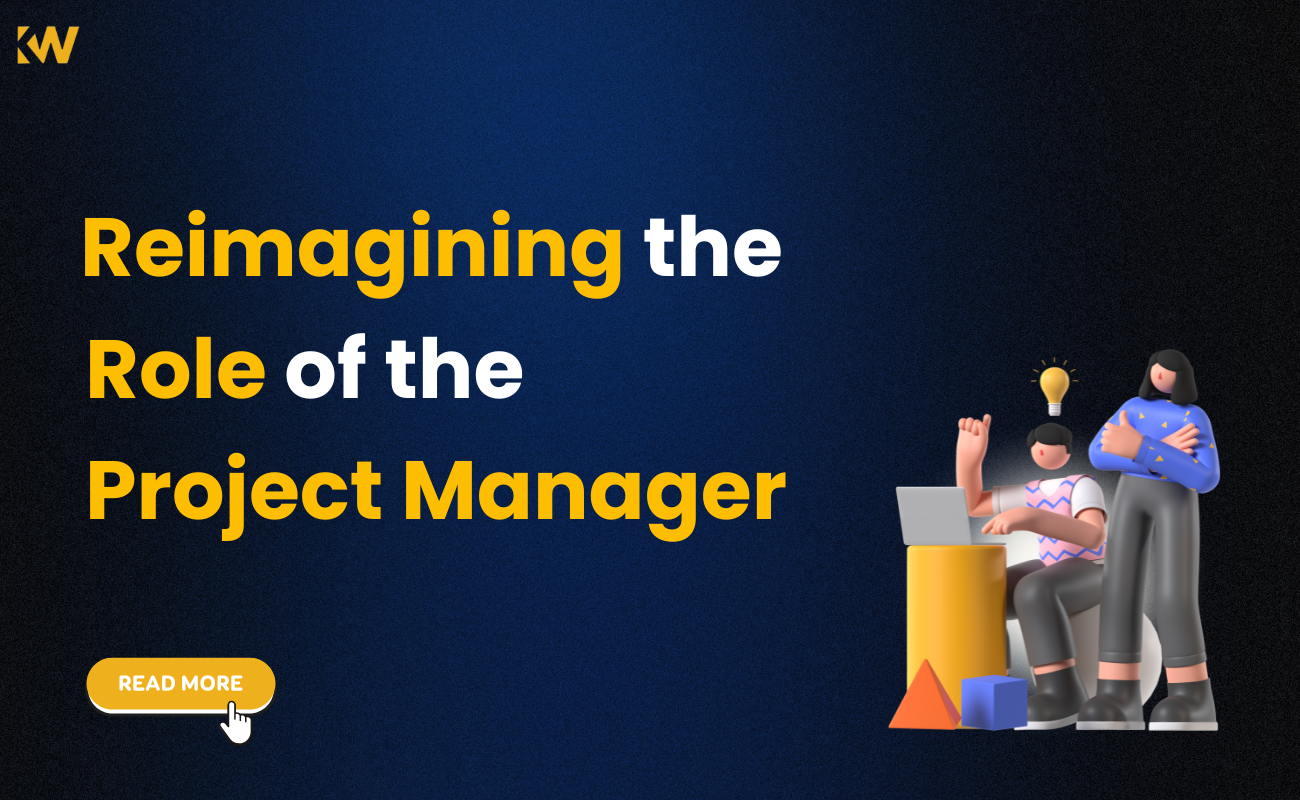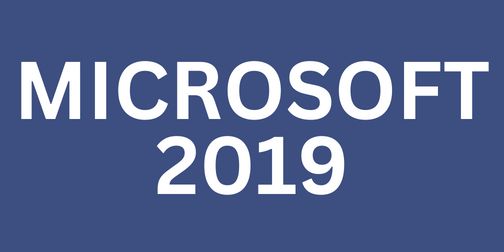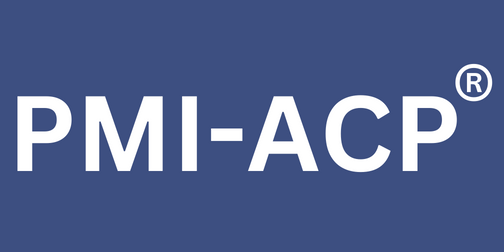
Reimagining the Role of the Project Manager
Posted On November 4, 2024 - 17:21 PM
As companies evolve and adapt to an ever-digital environment, the job that a project manager plays is changing. The traditional picture of a project manager as a deadline-oriented, task-oriented overseer is no longer sufficient to meet the needs of today's projects. Project management today requires fresh perspectives and skill sets that go beyond traditional tasks. We'll look at how the job as a manager for projects has changed as well as how they can grow to meet the demands of this new era.
1. From Taskmaster to Strategic Partner
Project managers are today required to play a role in the strategic plan. They have to go beyond routine task management to function as strategic partners in the business. This change will require project management to
-
Learn about the goals of your organization: as well as aligning projects to meet them.
-
Work with other stakeholders: to ensure that the project results support long-term goals.
-
Influence the process of decision-making: by providing information and suggesting project routes that maximize the value.
In this way, project managers are integral to the organization's vision not just the project's schedule.
2. Embracing Agile and Hybrid Methodologies
With the growing popularity in popularity of Agile and hybrid methods, Project managers are moving from rigid frameworks to flexible ones. This flexibility allows them to adapt to changes in needs, foster innovation and improve the project's outcomes. The most important skills of this new model are:
-
Flexibility: Project managers should be comfortable with changes moving from traditional Waterfall methodologies to agile or hybrid methods depending on the need.
-
Helping Collaboration: Modern projects thrive when they collaborate, and managers of projects now serve as facilitators who guide and help cross-functional teams.
-
By enhancing Teamwork: by giving team members the ability to make choices, project managers can establish trust and create a space where teams can organize themselves.
Adopting an Agile mentality also means focusing on continuous improvement as well as frequent feedback loops and creating value incrementally.
3. Prioritizing Emotional Intelligence and Soft Skills
The job of a project manager has evolved to include managing people. Beyond coordinating deadlines and tasks project managers are now managing conflicts, personalities, and morale. The ability to manage emotions (EI) is becoming more important for project managers because they:
-
Create rapport with different teams: to promote confidence and trust in communication.
-
Explore intricate interpersonal dynamics: to ensure that the project is cohesive.
-
Find a solution to conflict: in a manner that respects the individual's perspective and encourages collaboration.
Project managers who are skilled in emotional intelligence can create more powerful and more motivated teams, which can improve overall project performance.
4. Leveraging Data and Technology for Informed Decision-Making
Data-driven decision-making is now an essential element of managing projects. Project managers of the future are required to utilize automated tools, and data analytics platforms in addition to AI to:
-
Plan for project risks: and address proactively any possible issues.
-
Monitor and report on project progress: by providing real-time data that increases accuracy.
-
Improve resource allocation: by analysing the historical data of projects and forecasting the needs of your team.
This greater reliance on data enables project leaders to make better decisions quicker provide clear insights into the project to the stakeholders, and ultimately improve the outcomes.
5. Championing Diversity and Inclusion
The present-day project managers aren't solely responsible for the success of their projects but also for creating diverse work environments. Project managers play a crucial part in encouraging diversity through:
-
Promotes inclusive and collaborative practices: within the project teams to ensure that every voice is heard.
-
Promoting diversity initiatives: that align with the values of the business.
-
Promoting different perspectives: in the process of decision-making could result in more innovative and comprehensive solutions.
This emphasis on inclusion and diversity benefits the company by bringing diverse perspectives that help increase the ability to think creatively and solve problems within the project teams.
6. Becoming Change Leaders
In this era of rapid technological advances and changing business environments, managing change is a key skill that project leaders must master. They are required to lead their teams through the process of transition whether that's adjusting to a new technology platform, aligning goals for projects or pivoting to respond to market trends. Project managers who are change leaders are:
-
Helping teams navigate through the transitions: by communicating the impact of change clearly and compassionately.
-
Promoting resilience: inside the organization by helping members take on and adapt to the changing environment.
-
Making smooth and seamless transitions: by actively identifying obstacles and assisting team members to overcome these.
In assuming the leadership role of a change manager Project managers can to minimize disruptions and ensure their teams are efficient and engaged when there is uncertainty.
7. Elevating Communication Skills to Build Transparency and Trust
Communication has always been a crucial element of project management, but it's becoming more complicated and nuanced. Project managers today must handle communication across different teams as well as time zones and channels of communication. This includes:
-
Making clear and short messages: to prevent miscommunications.
-
Creating open channels: to receive feedback and inquiries to ensure that team members feel included.
-
Maintaining openness: with stakeholders to establish confidence and demonstrate the progress made.
Managers of projects who communicate effectively can better manage projects in sync, promote team cohesion and engagement, as well as involve all stakeholders.
The role of the project manager
The role of a manager is crucial to the success of any project. being the intermediary between the goals of the project and project members, stakeholders and resources. Here's a list of their duties and impact:
1. Planning and Initiating Projects
-
The scope of the project should be defined, along with goals and deliverables.
-
Create detailed plans for the project that include timeframes, resources, as well as budgets.
-
Determine the risk that is most likely to occur and then develop strategies to reduce these risks.
2. Managing Resources
-
Create and manage an entire project team, through assigning responsibilities, roles and tasks.
-
Make sure that the project is equipped with the right resources (personnel technology, personnel, and equipment) to run smoothly.
-
Manage workload and resources efficiently to reduce bottlenecks and burnout.
3. Monitoring Progress
-
Monitor the progress of projects against established timelines and milestones.
-
Utilize project management tools to track schedules, budgets and resource allocation.
-
Send regular updates to all the stakeholders and make any adjustments needed to ensure that you are on the right path.
4. Communication and Collaboration
-
As the main source of communication between the participants with the Project Team.
-
Make sure that you communicate clearly and consistently to ensure that everyone is on the same page with the goals of the project and regular information updates.
-
Participate in meetings, report sessions and feedback sessions to keep everyone on the same page.
5. Risk Management
-
Analyze, recognize the risks and take steps to mitigate them throughout the project.
-
Create contingency plans for handling unexpected problems.
-
Modify strategies as necessary to prevent disruptions from occurring and ensure stability of the project.
6. Ensuring Quality Control
-
Review project deliverables to ensure that they are in line with the quality standards.
-
Establish quality assurance practices and increase team accountability.
-
Find solutions quickly to stop problems from affecting the final product.
7. Closing the Project
-
Conduct final reviews to make sure that project goals have been met and those involved are satisfied.
-
Record the lessons learned and areas of improvement to be used in future projects.
-
Perform post-project tasks, such as the final report, assessments, as well as team acknowledgement.
Evolving Role: From Traditional to Transformative
In modern project management, the job of the project manager has expanded to include the ability to think strategically, have emotional intelligence, and have flexibility. Project managers now have to be:
-
Strategic Partners: aligning projects with the organization's goals.
-
Change Leaders: Guide teams through changes.
-
Data-driven Decision Makers: using analytics to guide the project's strategies.
1. Alignment to Strategic Goals
-
Benefit: Project managers who act as strategic partners, ensure that the projects meet the objectives of the organization, generating results and making sure that resources are contributing to the long-term development.
-
Impact: organizations see better outcomes when projects more directly meet business objectives which means reducing the amount of time wasted and maximizing return on investment.
2. Increased Adaptability and Responsiveness
-
Benefit: Project managers who use Agile or hybrid approaches enable teams to quickly pivot in response to changes in market demand, from changing trends to technological advances.
-
Impact: The organizations are more resilient and able to adapt to changes and take advantage of new opportunities without sacrificing quality or timeframes.
3. Enhanced Team Collaboration and Morale
-
Benefit: In fostering collaboration and empowerment of team members, the project manager can increase morale, team cohesion and efficiency. Emotional intelligence plays an important part in motivating teams as well as managing interpersonal dynamics.
-
Impact: Engagement of employees reduces turnover while cohesion teams perform better which results in improved results and efficiency.
4. Data-Driven Decision Making
-
Benefit: Utilizing data analytics, project managers can make a more informed, immediate decision by analyzing the results of past projects, resource utilization and risk prediction.
-
Impact: organizations can more efficiently utilize resources, anticipate problems before they occur and modify strategies that result in greater likelihood of success and predictability for projects.
5. Improved Stakeholder Trust and Transparency
-
Benefit: project managers who keep open, transparent communication establish trust with their stakeholders and keep them engaged and informed, increasing the alignment of their teams and reducing confusion.
-
Impact: Transparency in communications improves stakeholder relations and faster resolutions when changes or problems arise, improving the credibility of your project and ensuring that stakeholders are satisfied.
6. Enhanced Risk Mitigation
-
Benefit: By taking an active approach towards risk control modern project managers are able to anticipate problems and develop strategies to limit the impact.
-
Impact: Reduced disruptions to projects and delays aid in maintaining budgets and schedules, thereby saving the company from unexpected expenses and delays.
7. Promotion of Diversity and Inclusion
-
Benefit: Project managers who promote diversity can bring different perspectives to solving problems, enhancing the team's creativity and making decisions.
-
Inclusive impact: Teams create more imaginative solutions and offer greater insight into projects, which is especially useful in the current globalized marketplace.
8. Change Leadership and Business Transformation
-
Benefit: Project managers who are proficient in change management can help organizations make smooth transitions from digital transformation to the introduction of new market entry.
-
Impact: Effective change management decreases resistance reduces productivity dips and helps create a more flexible workforce better prepared for the future.
Conclusion
Reimagining the role of a project manager requires adopting a more collaborative, strategic and compassionate approach to managing projects. As companies continue to change the job of the project manager will continue to evolve which requires a continual dedication to learning and adjusting. The road to stay relevant requires acquiring abilities in data analysis, emotional intelligence as well as strategic management. This change assures that project managers are not only a source of income for the company, but are the key to ensuring the organization's success.
Are you willing to embrace the new era of management for projects? The time to begin reimagining the role of project management is now.
Check Out This Blog : Using AI Tools to Make Meeting Minutes Magic!


















